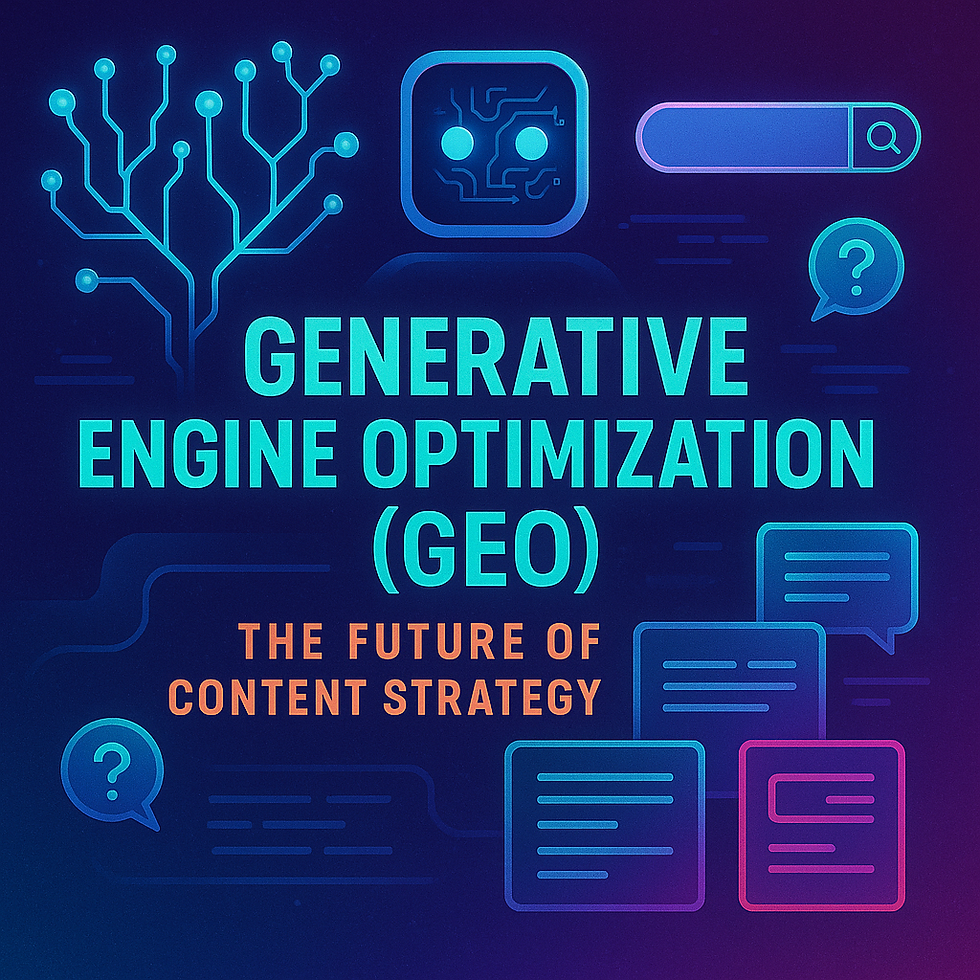What is Generative Engine Optimization (GEO), and How Does It Change Content Strategy?
- Youssef Moutik
- Aug 3, 2025
- 2 min read

Generative Engine Optimization (GEO) refers to the practice of optimizing digital content specifically for generative AI-driven search engines and conversational agents, such as ChatGPT, Google's Gemini, and other large language model-based (LLM) tools. Unlike traditional SEO, which focuses on keywords and backlinks primarily to rank on search engines like Google, GEO aims to ensure content is discoverable, clear, and easily summarizable by AI.
How is GEO Different from Traditional SEO?
Traditional SEO strategies are largely keyword-driven, emphasizing site structure, backlinks, and technical optimization. GEO, however, prioritizes:
Clarity and Conciseness: AI tools prefer succinct, clearly structured information.
Semantic Richness: Using structured data and schemas that AI can easily parse and understand.
Contextual Quality: AI evaluates how useful content is in answering user queries rather than just matching keywords.
Why is GEO Important in 2025?
As generative AI becomes increasingly integrated into daily search and discovery habits, traditional SEO strategies alone become less effective. Today's searchers often use AI assistants for recommendations and answers rather than traditional search engines. Optimizing content for these generative models ensures brands remain visible, relevant, and competitive in AI-mediated information ecosystems.
How to Optimize Content for GEO
Use Structured Data: Implement schemas and metadata that clearly define your content's purpose and topic.
Create Answer-Oriented Content: Structure your content to directly answer questions, especially “how,” “what,” and “when” queries.
Prioritize Summarization: Provide succinct summaries or highlights within your content, making it easy for AI to extract and reuse.
Write Conversationally: AI-driven engines prioritize human-like language that's natural, easy to understand, and conversational.
Enhance Contextual Relevance: Ensure your content comprehensively addresses topics with relevant context, anticipating related follow-up questions.
Impact of GEO on Content Strategy
Content strategists now need to design articles, web pages, and multimedia resources not just for humans and traditional crawlers but explicitly for AI interpretation and summarization. This involves crafting content that directly aligns with user intent, uses explicit and contextually relevant language, and ensures each piece can stand alone as a clear and concise source of information.
Future Outlook
As generative AI advances, GEO will become standard practice. Companies that adopt GEO strategies early will be well-positioned to dominate AI-driven search results and conversations.
In short, GEO is transforming how we think about content—from merely ranking on search engines to actively participating in AI-facilitated discussions and recommendations.
.png)
Comments